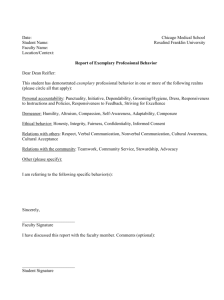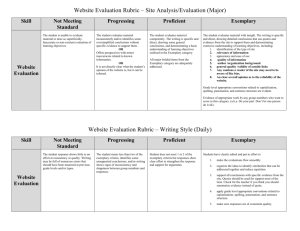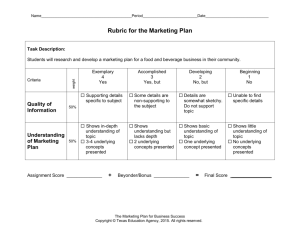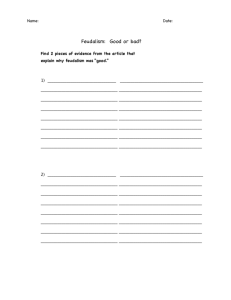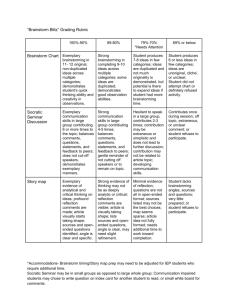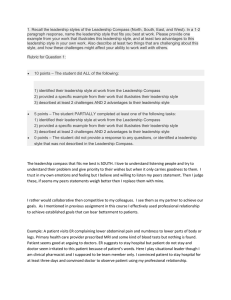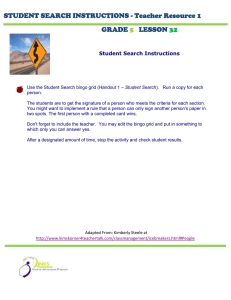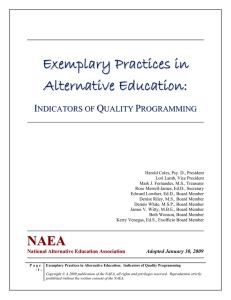Document 10989854
advertisement
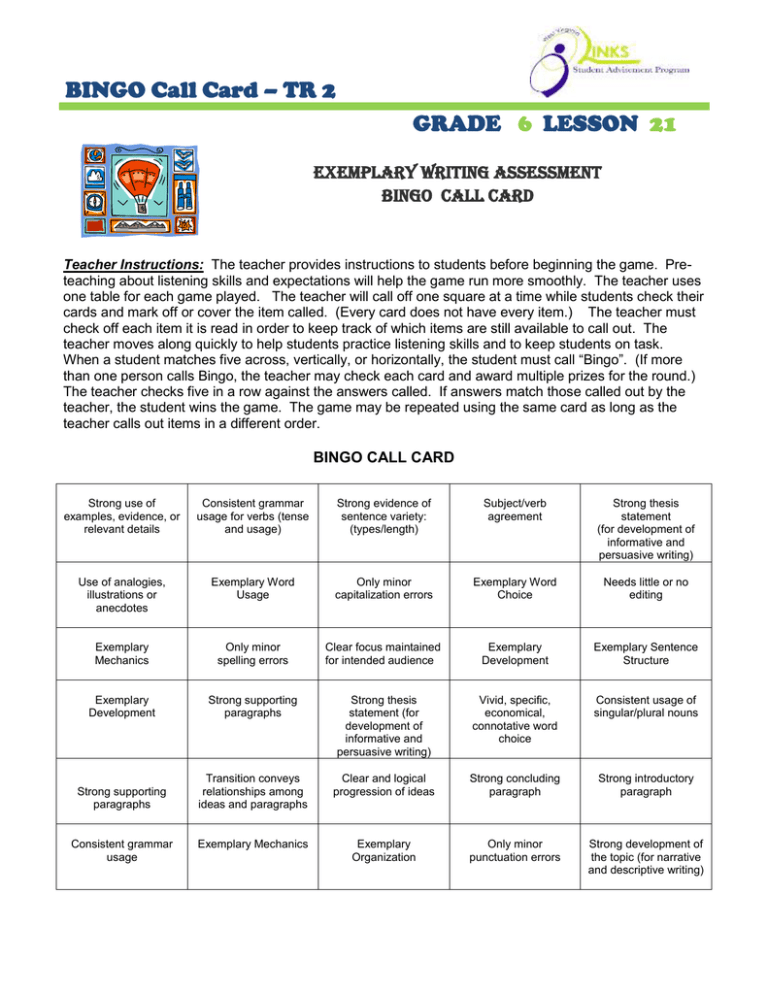
BINGO Call Card – TR 2 GRADE 6 LESSON 21 Exemplary Writing Assessment Bingo CALL CARD Teacher Instructions: The teacher provides instructions to students before beginning the game. Preteaching about listening skills and expectations will help the game run more smoothly. The teacher uses one table for each game played. The teacher will call off one square at a time while students check their cards and mark off or cover the item called. (Every card does not have every item.) The teacher must check off each item it is read in order to keep track of which items are still available to call out. The teacher moves along quickly to help students practice listening skills and to keep students on task. When a student matches five across, vertically, or horizontally, the student must call “Bingo”. (If more than one person calls Bingo, the teacher may check each card and award multiple prizes for the round.) The teacher checks five in a row against the answers called. If answers match those called out by the teacher, the student wins the game. The game may be repeated using the same card as long as the teacher calls out items in a different order. BINGO CALL CARD Strong use of examples, evidence, or relevant details Consistent grammar usage for verbs (tense and usage) Strong evidence of sentence variety: (types/length) Subject/verb agreement Strong thesis statement (for development of informative and persuasive writing) Use of analogies, illustrations or anecdotes Exemplary Word Usage Only minor capitalization errors Exemplary Word Choice Needs little or no editing Exemplary Mechanics Only minor spelling errors Clear focus maintained for intended audience Exemplary Development Exemplary Sentence Structure Exemplary Development Strong supporting paragraphs Strong thesis statement (for development of informative and persuasive writing) Vivid, specific, economical, connotative word choice Consistent usage of singular/plural nouns Strong supporting paragraphs Transition conveys relationships among ideas and paragraphs Clear and logical progression of ideas Strong concluding paragraph Strong introductory paragraph Exemplary Mechanics Exemplary Organization Only minor punctuation errors Strong development of the topic (for narrative and descriptive writing) Consistent grammar usage
